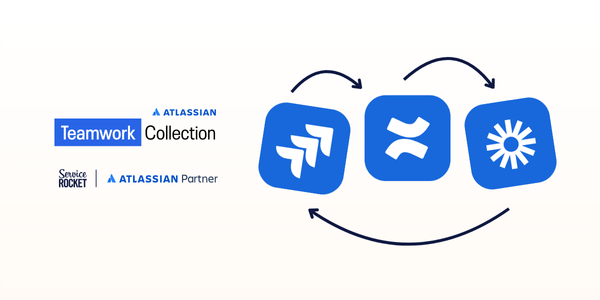Blog
How Family Jewelry CEO Roberto Mattei Explores Atlassian To Master His Craft
Explore Rob Castaneda’s philosophy on blending technology with craft. See how ServiceRocket applies the Atlassian System of Work to drive artisan growth.
Learn how a family jeweler could leverage the Atlassian System of Work to blend art and technology. Plus, hear how ServiceRocket CEO and Founder Rob Castaneda leans into the “Craft” side of crafting technology.


Crew Member Close Up: Jessie Turpin Makes Her Mark With The ServiceRocket Crew Member Program
Jessie Turpin traded 5 years at Atlassian for the flexibility of the Crew Member Program. Discover how she overcame the "freelancer's dilemma" regarding tool access and read her advice for experts seeking short-term technical project delivery roles.
For Support Engineering expert Jessie Turpin, joining the ServiceRocket Crew Member Program unlocked a whole new world of possibilities, gaining flexibility and impact to grow her freelancing practice. In this post, Jessie shares her exciting journey and advice for others curious to join the Crew.
UTS Honours ServiceRocket Founder and CEO Rob Castaneda with UTS Fellowship Award
SYDNEY, AUSTRALIA – 28 October 2025 – The University of Technology Sydney (UTS) has named Rob Castaneda, Founder and CEO of global technology services company ServiceRocket, as a Fellow of the University in recognition of his exceptional contributions and long-standing support.

Sign up for updates
Filters

How Family Jewelry CEO Roberto Mattei Explores Atlassian To Master His Craft
Crew Member Close Up: Jessie Turpin Makes Her Mark With The ServiceRocket Crew Member Program
UTS Honours ServiceRocket Founder and CEO Rob Castaneda with UTS Fellowship Award
The ServiceRocket and Tana Partnership: A Global Talent Success Story
How Enterprises Can Leverage the Power of the Atlassian Teamwork Collection
Atlassian Rovo: Your AI Implementation Roadmap
The Spirit of Rockettoria Cafe Lives On At UTS Startups
Opsgenie End of Support: What It Means and What to Do Next
ServiceRocket Wins Global Atlassian Co-Selling Excellence Award Off the Back of Major Customer Wins
Increase Enterprise Productivity with Atlassian Forge Customized Apps
Rovo for Everyone: AI Is Now Integrated Into Your Atlassian Tools. Here's How to Maximize Value
No results found.













.jpg)